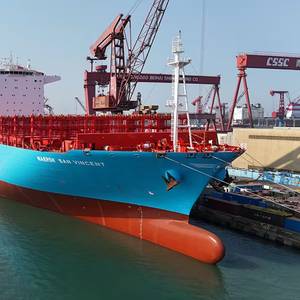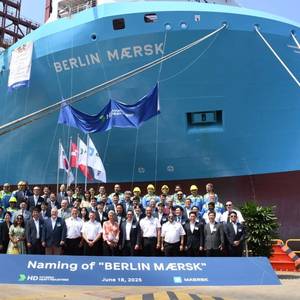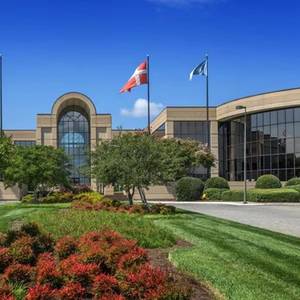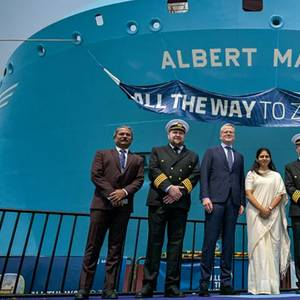
A.P. Moller - Maersk has ordered eight large container vessels from China’s New Times Shipbuilding.All eight ships will have the same characteristics and make up a new series of 18,600 TEU vessels with delivery in 2029 and 2030.The ships will be equipped with dual-fuel engines able to operate on conventional bunker fuel or liquified gas.

WAPS: Making the Wind Blow for Shipping’s DecarbonizationIn the evolving landscape of maritime decarbonization, few subjects are as timely or arguably as misunderstood as wind-assisted propulsion. Yet the shipping industry finds itself at a decisive moment, driven by regulatory tightening, customer expectations for greener supply chains, and an urgent need to manage escalating fuel costs.

A.P. Moller - Maersk (Maersk), in close collaboration with the owners, is retrofitting around 200 vessels in its time-chartered fleet as part of a large-scale program involving 50 different shipowners.The main aim of the program is to reduce the slot cost by improving fuel efficiency and cargo-carrying capacity leading to a decrease in both cost and greenhouse gas emissions.

Danish shipping group A.P. Moller - Maersk has named the first vessel in a series of 17,480 TEU vessels equipped with dual-fuel methanol propulsion, which will operate under the name of Berlin Mærsk.The naming event took place on June 18, at Hyundai Heavy Industries’ (HHI) yard in Ulsan, South Korea.

A.P. Moller - Maersk has appointed Ditlev Blicher as the new Regional President for North America, effective January 1, 2026.Blicher assumes the role after most recently serving as the company’s Regional President for Asia Pacific since 2023.A logistics industry veteran, Blicher joined Maersk in 2020 with deep global experience in operations and general management.

A.P. Moller-Maersk (Maersk) has selected Charlotte for its official North America headquarters, committing to add more than 500 jobs to its current Charlotte-based workforce over the next several years, ultimately bringing its Charlotte workforce to more than 1,300.Maersk has had a corporate presence in Charlotte for more than two decades

A.P. Moller – Maersk is reinforcing its long-term commitment to India's maritime sector and is intending to significantly expand its operational footprint in the country through port infrastructure investments, vessel reflagging, and enhanced local partnerships across the maritime value chain.APM Terminals Pipavav (Gujarat Pipavav Port Limited), part of A.P.

In a large-scale program involving 50 different shipowners, A.P. Moller - Maersk is retrofitting around 200 vessels in its time-chartered fleet. The main aim of the program is to reduce the slot cost by improving fuel efficiency and cargo-carrying capacity leading to a decrease in both cost and greenhouse gas emissions.

For the first quarter of 2025 A.P. Moller - Maersk A/S (Maersk) reports revenue growth of 7.8% to $13.3 billion with EBIT increasing to $1.3 billion from $177 million a year ago.The company states that these results, while sequentially down as expected, represent a good start to the year and were driven by solid profitability in Ocean

HD Hyundai and A.P. Moller - Maersk have signed an Memorandum of Understanding (MoU) to establish a collaboration on decarbonization solutions for vessels, while HD Hyundai plans to expand the use of Maersk’s integrated logistics services across its affiliates.Since 2021, HD Hyundai has received orders for a total of 19 methanol-powered container ships from Maersk.

XMAR, a maritime technology company, announced that Hans-Christian Mordhorst is joining the company as Chief Executive Officer (CEO). Mordhorst brings more than 25 years of experience in the maritime industry, including a decade of leadership in maritime technology ventures. Mordhorst previously served as Chief Commercial Officer at Marcura Group, a maritime digital solutions provider

A.P. Moller - Maersk celebrated the name-giving of its newest dual-fuel methanol container vessel in Mumbai on February 28 as a part of the vessel’s maiden voyage to India. The vessel, named Albert Maersk, is the eleventh vessel in Maersk’s fleet capable of operating on methanol.“India is among the world's fastest-growing major economies, with a thriving manufacturing sector